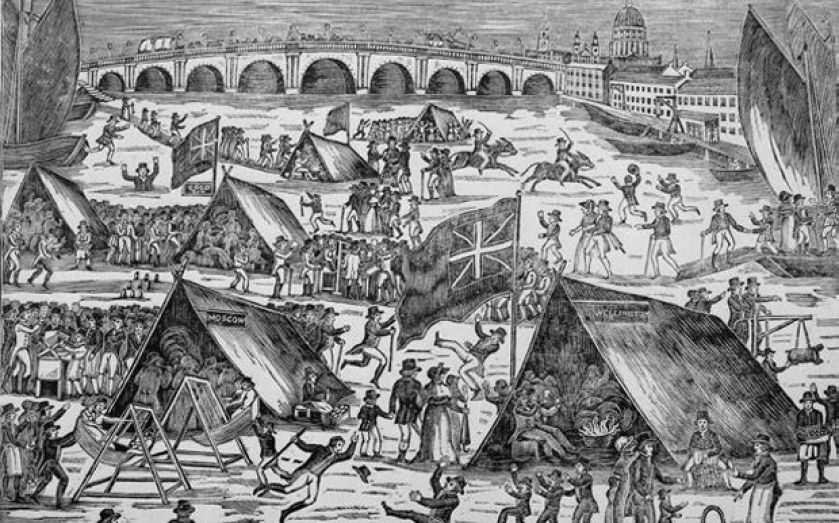Fancy a gin? Recreate a frost fair

IMAGINE a hedonistic festival on the Thames replete with pop-ups selling artisanal gin cocktails and tasty food. It wouldn’t be out of place in 2014, but it’s what used to happen on the river when it froze 200 years ago.
Frost fairs were raucous affairs, during which ship sails were turned into makeshift tents selling, gin, gin and more gin. Sounds like a health and safety nightmare.
To celebrate the anniversary of the last fair, in 1814, Broadgate is hosting its own version of the fair at its ice rink on 3 February – complete with free ice skating, food and entertainment. Just no frozen Thames and probably a little less debauchery.
If you don’t fancy braving the cold, the Museum of London Docklands has an exhibition starting today that features frost fair paintings and etchings – they’ve even got a piece of gingerbread, still with its packaging, from the last fair in 1814.
Mmm, 200-year-old gingerbread, reckon it’s a bit hard by now.
■ Those of you who thought garden cities, currently being championed by Nick Clegg as a masterful solution to the housing crisis, were Babylon-esque leafy slices of utopia, will be horrified to find the term is seen by some as nowt but a marketing tactic.
After launching the Wolfson Economics Prize last November (with the award to go to the best plan for a new garden city) the eponymous Lord Wolfson was speaking at a related event yesterday. When asked by the audience exactly what makes a town a “garden city”, he responded: “Very good question, it’s to make the idea of new cities more acceptable… you’ve rumbled me, it’s a marketing gimmick.”
Gimmick or no gimmick, garden cities (or simply, new cities with lots of green bits) are a valid and, some would argue, essential tool to deal with our current urban sprawl.
It doesn’t help of course that some of the existing examples are, well, maligned for their blandness (yes, you, Milton Keynes, with your 300 roundabouts). Let’s hope Wolfson Prize entrants cook up something a little more exciting for the green belts of tomorrow. Or we won’t budge from our urban cash pads.